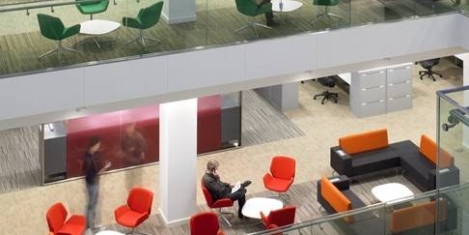June 29, 2017
Majority of new managers are unprepared and unable to manage their teams 0

Businesses across the UK could be experiencing significant losses in productivity because managers are unprepared and unable to manage their teams new research suggests. The research which was carried out by chartered fellow of the CIPD Susan Binnersley MD of development consultancy H2H, found that a majority (77.42 percent) of managers didn’t feel prepared to take on their first management role. Only 21.5 percent of people felt they had the full support of their manager when taking over a team and 69 percent admit they spent the majority of their time not managing their team in their first management role. This gets worse over time with 74 percent saying they now spend majority of their time not managing their team today; 81 percent say this is because they spend a large part of their time doing tasks their team should be responsible for. The majority (72 percent) claim this is because they want to lead by example but more than half (51 percent) admit they feel the task if done quicker if they do it. Managers also admit struggling with delegation, with 35 percent saying the struggled to let go of control, 35 percent saying they didn’t feel they had the resources and 29 percent saying it didn’t feel fair to ask someone to do the task.















 An exodus of staff is expected at the end of June, claims a new study which predicts that 36 percent of employees will have left their jobs by the end of this month. Research from Robert Half UK entitled: ‘It’s time we all work happy: The secrets of the happiest companies and employees’ finds employees in London and the East of England are most likely to have left their roles by the end of June with nearly half of Londoners (49 percent) and 42 percent of those in cities like Cambridge, Norwich and Peterborough admitting they anticipate quitting their jobs in the first six months of the year. This trend is being driven by the millennial generation (aged 18–34), who despite experiencing above average levels of happiness (71.7) and interest (71.3) in their roles, are more likely to have left their jobs (49 percent) compared to a third of 35–54 year old’s and a fifth (21 percent) of those aged over 55.
An exodus of staff is expected at the end of June, claims a new study which predicts that 36 percent of employees will have left their jobs by the end of this month. Research from Robert Half UK entitled: ‘It’s time we all work happy: The secrets of the happiest companies and employees’ finds employees in London and the East of England are most likely to have left their roles by the end of June with nearly half of Londoners (49 percent) and 42 percent of those in cities like Cambridge, Norwich and Peterborough admitting they anticipate quitting their jobs in the first six months of the year. This trend is being driven by the millennial generation (aged 18–34), who despite experiencing above average levels of happiness (71.7) and interest (71.3) in their roles, are more likely to have left their jobs (49 percent) compared to a third of 35–54 year old’s and a fifth (21 percent) of those aged over 55. 
















June 14, 2017
Workplace wellbeing is now embedded in the very bricks and mortar of the building 0
by Sion Davies • Comment, Wellbeing, Workplace design
(more…)